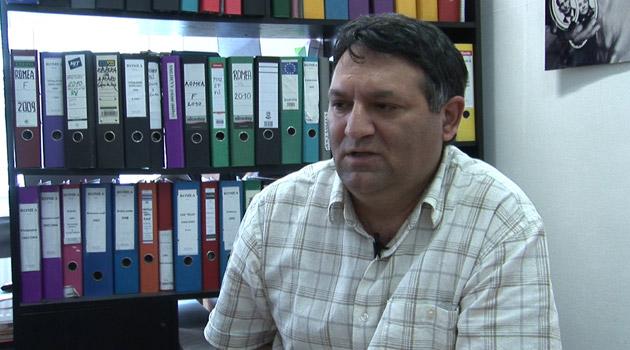Cyril Koky: We must solve our own problems - Brussels won't solve them for us

When we talk about the European Union in the Czech Republic, it is often linked mainly to the Schengen area, but how does the EU help the socially disadvantaged? The Kolín daily recently conducted the following interview with Cyril Koky, the Central Bohemian Coordinator for Minority Affairs, about this issue.
Q: When the advantages of being in the EU are discussed, people often mention the option to travel. During the 10 years that the Czech Republic has been a member of the EU, what has it done for minorities? Can you name a few advantages?
A: The European Union is dedicating more and more attention to Romani integration, a Roma Sumit has been held three times at EU level now. All of the EU Member States have pledged to follow a set of recommendations proposed by the European Commission in an effort to improve the economic and social integration of Roma communities. Nevertheless, this will demand greater political will and determination, not only a government level, but in particular at local level, to solve the problems of socially excluded Romani people as well as those who face prejudice and stereotyping.
Q: People most often know the EU as a way to access various grants and subsidies. Do you know of any in the Kolín area that have helped minorities? How specifically?
A: Use of the EU funds is a very significant component of the EU’s aid and support to the Member States. In the Kolín area, several projects from the EU funds have managed to be successfully implemented. Of them all, the one I recall is, for example, a non-investment project awarded to the Town of Kolín to finance social services from December 2014 through June 2015. The total amount of that subsidy will amount to almost eight million Czech crowns.
Q: The European Union has protested against the placement of minority children into "special schools". How has this problem been solved? Is it, in your view, solved to the satisfaction of everyone, or could something be improved about the solution?
A: That practice in the Czech Republic has not just been criticized by EU institutions. We also have a judgment from the European Court of Human Rights (ECtHR). That judgment confirmed that the Czech Republic discriminates against Romani children by disproportionately sending them to the "practical" schools (previously, the "special" schools). Despite international criticism, this problem persists. I expect that specific measures and steps in this area would be taken by the leadership of the Ministry of Education, Youth and Sports in particular.
Q: A decade of membership in an international organization is a rather short time. Can you imagine how the European Union will aid minorities during the next 10 years?
A: Despite constant bureaucracy and restrictions that very often cause ordinary people hardship, I am very glad the Czech Republic has firmly become a part of the EU. There are problems the individual Member States must know how to solve jointly at the supranational level, where they must reach common agreement. I believe in an EU that is operational, strong, one where our country will not just get lost. In the area of addressing the Romani issue, the European Commission has already defined specific measures for the individual Member States that should lead to overall improvement in the living conditions of Romani communities. In the near future, in my opinion, the European Commission should establish the position of European Commissioner for Roma Integration Issues to bear political responsibility for this area.
Q: Is there something that you believe our EU membership has not managed to resolve during the past 10 years and that continues to aggravate the minority problem?
A: The Roma in Europe are the largest national group with the most serious socioeconomic problems. The living conditions of most of the Romani population and their relations with majority societies have unfortunately greatly deteriorated in recent years. Many Romani people have long been unemployed, have low incomes, lower life expectancy, and a very unsatisfactory quality of life. The question of the migration of predominantly impoverished Romani people, primarily from the Balkans, is becoming a serious problem.That is why I very much welcome the effort of the European Commission to adopt a European Roma Strategy, which will require each EU Member States to set binding goals for itself in the area of Romani integration and the Commission will thoroughly monitor implementation. Nevertheless, we must know how to resolve basic problems here at home, and we must want to solve them – Brussels will not solve everything for us!